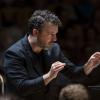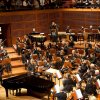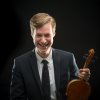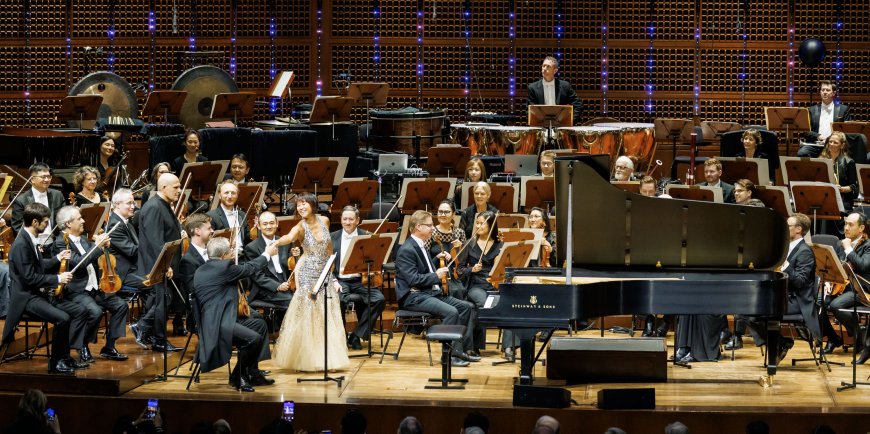
When the San Francisco Symphony musicians processed onstage from both wings of Davies Symphony Hall on Friday, Sept. 12, they were greeted by a long and boisterous ovation with plenty of cheering and a few whistles. It had the feel of a home team returning to the field of play in front of a devoted crowd.
There was also a tinge of relief in the air. With the distinct possibility of a strike by the musicians’ union looming, the Opening Gala concert was in doubt until just hours before the first downbeat. That’s when a deal for a three-year contract, subject to approval by the membership, was announced.
After a long slough of discontent dating back to last September’s cancellation of the 2024 season-opener due to a strike by the San Francisco Symphony Chorus, and music director Esa-Pekka Salonen’s rupture with management and departure, a new start to a new season was welcome.
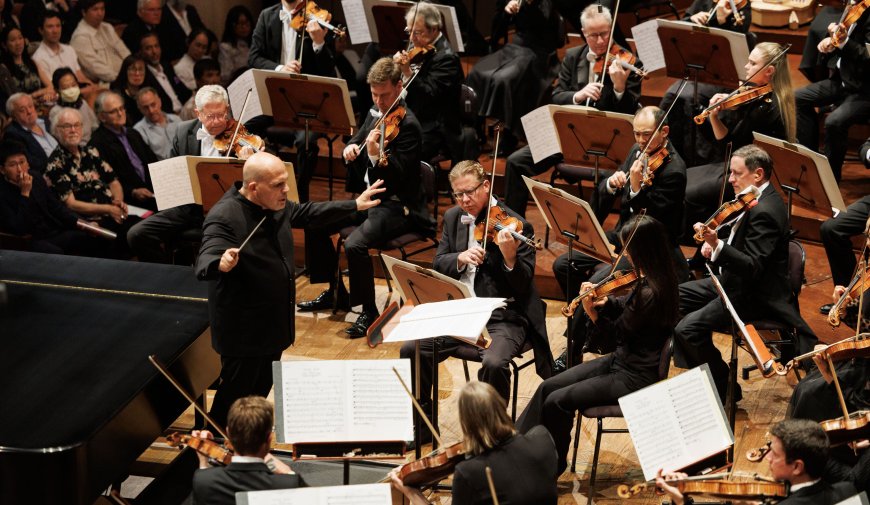
Sponsored by Zenni Optical, Friday’s concert began, fittingly, with John Adams’s 1986 Short Ride in a Fast Machine. What better way to signal a drive to the future than this exhilarating short work? With Jaap van Zweden on the podium, the volume control was set on high and largely remained there. While the piece foregrounds the brass and percussion sections, this Ride had the engine revving too hard. Much of the charm and wit went missing.
Pianist Yuja Wang, who has performed with SF Symphony so often over the years that she has become a de facto hometown heroine, was the headliner in Tchaikovsky’s Piano Concerto No. 1. Obligatory fashion note about this always showy dresser: She wore a glittery silver-and-white ballgown.
Wang, who could probably make a C-major scale worth hearing, had plenty to bring to this very familiar piece. Instead of riveting the early keyboard-spanning chords all in place, she lightened the pressure now and then to give Tchaikovsky’s call to arms a more arresting presence. Later in the movement, she anticipated some plucks from the double basses with a deft staccato and floated into a legato exchange with the woodwinds.
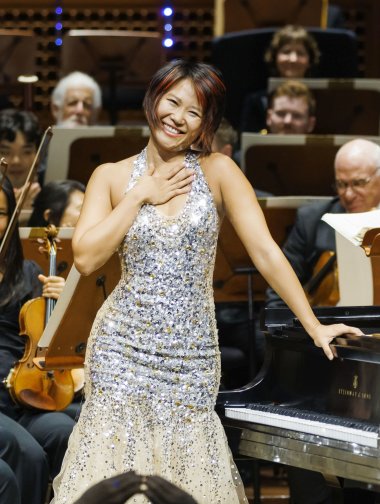
While balance issues were a problem at times — rehearsals under the week’s circumstances might have been fraught — the orchestra played solidly throughout, with some notably fine work by the oboes and cellos in the second movement.
Wang’s first-movement cadenza ranged in style from pixie-dance sprightliness to pensively stretched tempos, as if she were reluctant to leave a phrase unexplored. The second movement, marked Andantino semplice, brought out the pianist’s touching, pliant openness as well as her uncanny ability to vary dynamics in the midst of even the swiftest passage. Although that occasionally led to some seemingly arbitrary accents, the listener was getting a fresh read of a well-worn musical text. The wonders continued with whirring trills, the faintest pianissimo and more rhythmic insights, like the taut, almost syncopated attack on some measures in the final Allegro con fuoco.
The audience would have gone home slightly undernourished if Wang hadn’t added some encores. She obliged with three well-chosen ones, beginning with a lilting and propulsive “Dance of the Four Swans” from Tchaikovsky’s Swan Lake, arranged by Earl Wild. Wang then brought a meditative, gradually quickening pulse to Franz Liszt’s transcription of Schubert’s “Gretchen am Spinnrade.” The pianist’s top-that finale came in the form of gaudy improvisations on Bizet-Horowitz’s Carmen Variations.
After some boilerplate opening-night remarks by chief executive officer Matthew Spivey, the concert concluded with Ottorino Respighi’s programmatic tone poem, Pines of Rome. Performed by the Symphony in May along with the composer’s Fountains of Rome, Pines was fresh in the players’ musical memories. With that and van Zweden’s energetically engaged conducting, an expansive, luscious, and dramatic performance unfolded.
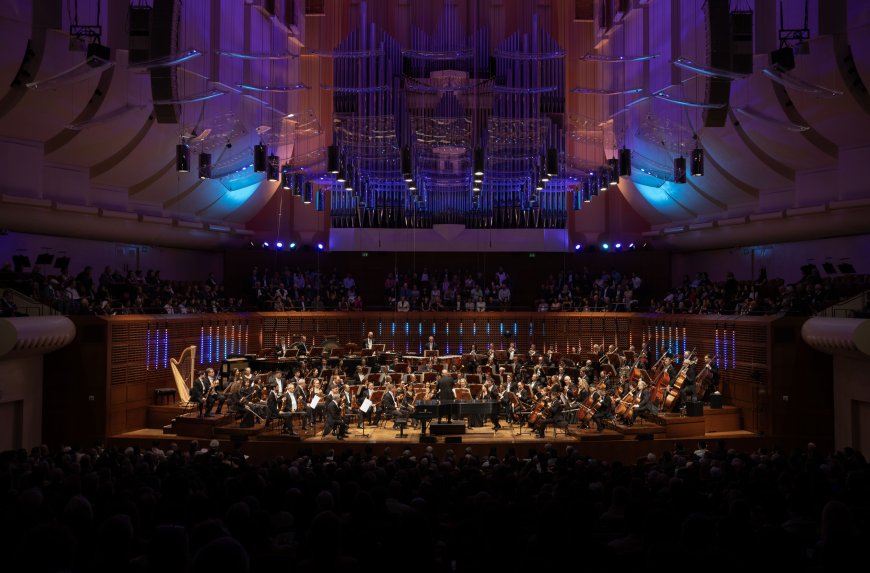
As blue-green light washed the stage walls, van Zweden and his fully committed players journeyed through Italy, from a sun-splashed Villa Borghese to the woods near a catacomb then on to a lustrous vision of light along the Appian Way.
You didn’t need to know any of that context to be swept along, from the brusque clamor of the trumpets and horns in the first movement to the darkly brooding strings in the second. In a performance of elegant assurance with plenty of fine contributions, Carey Bell’s clarinet solos — wistful and lyrically mellifluous — stood out. With antiphonal brass trios perched on the balconies and the entire ensemble striving valiantly toward a thundering major-key climax, these Pines rose to towering heights.
Summoned back to the stage by both the audience and the orchestra members’ stamping feet and waggling bows, van Zweden got a striking mark of respect when the orchestra remained seated to insist that he take a solo bow. The former music director of the New York Philharmonic, van Zweden will be back later this season to begin a three-year cycle of Beethoven’s nine symphonies. After that demonstration of support by the orchestra, some very good things may be in store.


